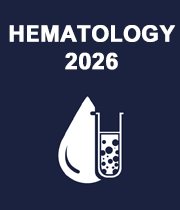Leukemia and Lymphoma
Leukemia refers to malignancies of the blood cells as a whole. The kind of leukaemia is determined by the type of cancerous blood cell and how rapidly or slowly it grows. Leukemia develops when the DNA of a single bone marrow cell mutates, making it unable to develop and function normally. The type of leukaemia you have, your age and overall health, and if the leukaemia has spread to other organs or tissues all influence your treatment options. The most prevalent cancer in individuals over 55 is leukaemia, but it is also the most common disease in children under the age of 15.
Lymphoma is a type of cancer that affects the lymphatic system, which is a part of the body's germ-fighting mechanism. Lymph nodes (lymph glands), spleen, thymus gland, and bone marrow are all part of the lymphatic system. All of these locations, as well as other organs throughout the body, can be affected by lymphoma. Lymphoma is relatively treatable, and the prognosis varies depending on the type and stage of lymphoma. One or more of the following treatments may be used: Chemotherapy, radiation therapy, proton therapy, targeted therapy, and surgery are some of the treatments available.



Title : Acute intermittent porphyria: A neurological dilemma obscured by ubiquitous fgastrointestinal presentation
Mayank Anand Singh, Mimer Medical College, India
Title : Comprehensive symptom management and supportive nursing care in a preterm toddler undergoing HSCT for pyruvate kinase deficiency
Tran Thi Dung, Vinmec International Hospital, Vietnam